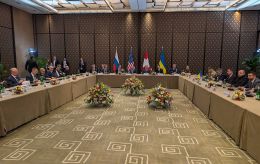Russia must lose Crimea to start negotiations with Ukraine - Volodymyr Ohryzko
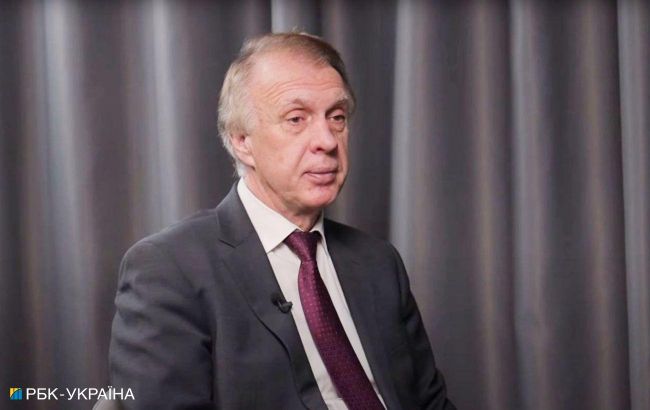 Volodymyr Ohryzko, former Ukrainian Foreign Minister (all photos: RBC-Ukraine)
Volodymyr Ohryzko, former Ukrainian Foreign Minister (all photos: RBC-Ukraine)
On how to persuade Donald Trump to support Ukraine, reasons for Joe Biden's inertia on Ukraine, Western politicians’ “comfort zones,” and their fear of Russia’s defeat – read RBC-Ukraine's interview with Ukrainian diplomat and former Ukrainian Foreign Minister Volodymyr Ohryzko.
Contents
The election of Donald Trump as the next US president is undoubtedly the number-one topic on the global agenda. In Ukraine, too, there is keen attention on news from the US While Trump has yet to provide specifics on his vague "peace plan," there is a prevailing sense of unease.
Nevertheless, seasoned diplomat Volodymyr Ohryzko urges against panic. If Trump is indeed focused on "making America great again," he argues, there is no reason to believe Trump would become a Kremlin puppet.
Ohryzko also criticized the White House's current administration for its lack of firm response to Russia’s violations of the world order and its persistence in appeasing aggressors at all costs. He believes that such an approach does not work with Moscow. Drawing on his experience in direct negotiations with Russians over a decade ago and as the head of the Center for Russian Studies, Ohryzko says the only way to achieve anything with Russia is by identifying and applying consistent pressure on its "pain points."
Donald Trump
"I don’t think we should adopt the attitude that ‘all is lost.’ That’s the easiest, but also the most mistaken approach."
"After all, Trump never said he would be at the Kremlin’s beck and call. What does Trump want? He wants to make America great again, right? How can he do that by becoming a second-rate player in global politics? And submit to whom? To Putin, a war criminal who’s breached all norms of international law, who is economically insignificant and has become a vassal of China?" Ohryzko says.
He believes that Ukrainian authorities need to develop a clear proposal on what Ukraine can offer the US.
"Trump is a businessman. What does a businessperson in politics want? They want results. Let’s look at Ukrainian-American relations from the perspective of what Trump could gain."
"Before the election, Trump remarked that Zelenskyy was the type to ‘come to America, take $60 billion, and go home.’ In reality, $50 billion of that sum stayed in the US. It went to American-made arms produced domestically. One Patriot system costs $1.2 billion. Ukraine alone needs at least 20 of these for basic defense. And Europe? Europe needs not 20, but around 220. We’re talking hundreds of billions of dollars."
"Would businessman Trump refuse if offered a plan to boost his economy with orders for the next 5-7 years?" the diplomat speculates.
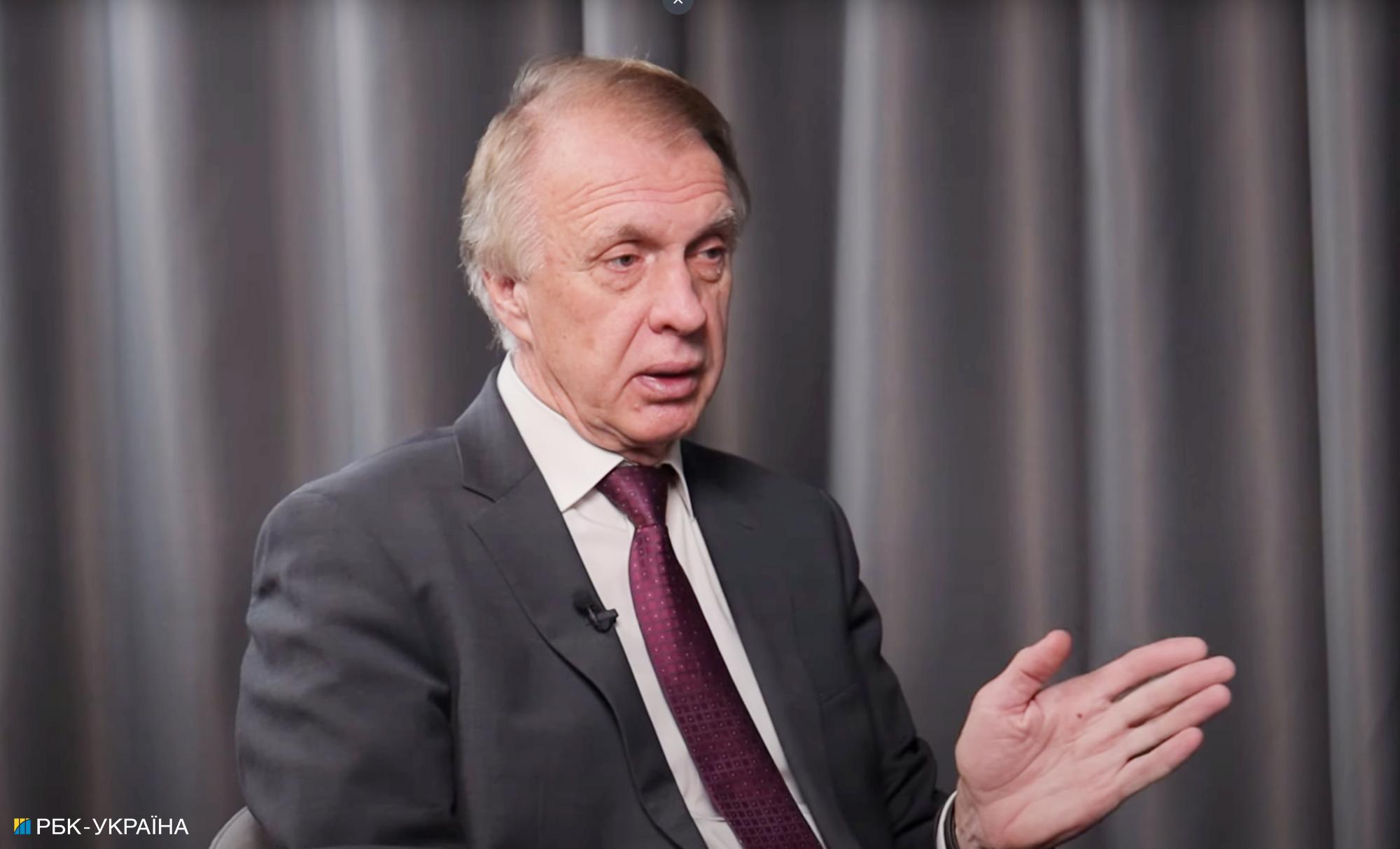
Furthermore, Ohryzko argues that it is crucial to clearly explain to the future US president what his country stands to lose if Ukraine fails: "[Trump] will sit down and consider, ‘If I help Putin take 20% of Ukraine, and then he continues, what do I gain? Just more problems. If I help Ukraine stand and defeat Putin, I’ll gain. Politically and economically.’ So what conclusion would Trump reach?"
Ohryzko suggests not dwelling too much on scenarios in which Trump cannot be persuaded to support Ukraine. The recent Washington summit approved $40 billion in military aid for Ukraine for the next year. The European Union and the G7 countries agreed to provide an additional $50 billion in financial aid to Ukraine in 2025. This time should be used to convince Trump to continue supporting Ukraine.
Joe Biden
Ohryzko describes Biden’s stance on the Ukraine war as “political impotence,” a pattern of weakness and indecisiveness from the Democrats dating back to Barack Obama’s presidency. Current US President Joe Biden, Ohryzko argues, uses any excuse — like Hurricane Milton that disrupted the Ramstein meeting with Biden — to avoid making decisions.
"The world should be peaceful, quiet, calm, with no need for escalation, where retreat is an option if needed. This is a mental ailment of sorts, this pseudo-liberal mindset that calls for peace and expects the adversary to repent and return to democratic values. Without a response to evil, it only grows stronger."
"In this pseudo-liberal view, evil should be called to order, reasoned with, so that it can return to normalcy. They don’t understand that evil must be forced back, or it will advance. This is all a continuation of the ideology of appeasement. Not punishment for a crime, but appeasement. And here we see the results," Ohryzko explains.
However, he says, Joe Biden still has a chance to take decisive steps that could alter the power balance in the Russia-Ukraine war before the new president is inaugurated.
"If Biden takes this last stretch of his political career to show leadership, he could make significant, beneficial steps for Ukraine. He has nothing to lose; in two months, he’ll step down, and that will be the end of his political career. So do something memorable, something bold."
"They have a plan to spend all remaining $6 billion intended for Ukraine. This is a great show of resolve. But they could do more—they could allow strikes on Russia’s deep targets, provide significantly more weaponry. Permission without capacity is meaningless," he says.
Ohryzko is skeptical about NATO membership though.
"A figure like Orban could say, ‘I oppose it.’ There’s no time to persuade Orban, especially since he knows Trump might support him in two months. If Kamala Harris had won, NATO membership might have been a possibility. Now, the chances are slim. However, Orban could still 'step out for coffee' when decisions are made, which is also possible. It’s all a matter of political will and decisiveness. And if there is no will, then we’re back to political impotence,” concludes the diplomat.
Negotiations with Russia
As a former foreign minister, Volodymyr Ohryzko draws on personal experience negotiating with the Kremlin, having taken part in talks with Russia during the so-called second gas war. In January 2009, Russian authorities shut off Ukraine’s gas supply and then extended the cut to EU countries a week later, claiming Ukraine was diverting transit gas intended for Europe.
“If Martians had been sitting across the table, I would have reached an agreement faster than with the Russians. They are a truly unique people,” he reflects.
So far, the former minister says, there is little hope of bringing the Kremlin to the negotiation table.
“To start with, Russia would have to lose Crimea. And, by the way, many high-level Western military strategists have long suggested that our military should begin with Crimea. They say it’s necessary to cut Crimea off from Russia. For Putin personally, Crimea is something sacred. He’s built his entire narrative around it, tracing his lineage back to ancient Rome. Maybe next, he’ll declare himself an heir of the Roman emperors; he has to keep advancing his story."
“If Crimea falls, so does his image as a victor. Putin is the macho man, the one who has always to win,” Ohryzko asserts.
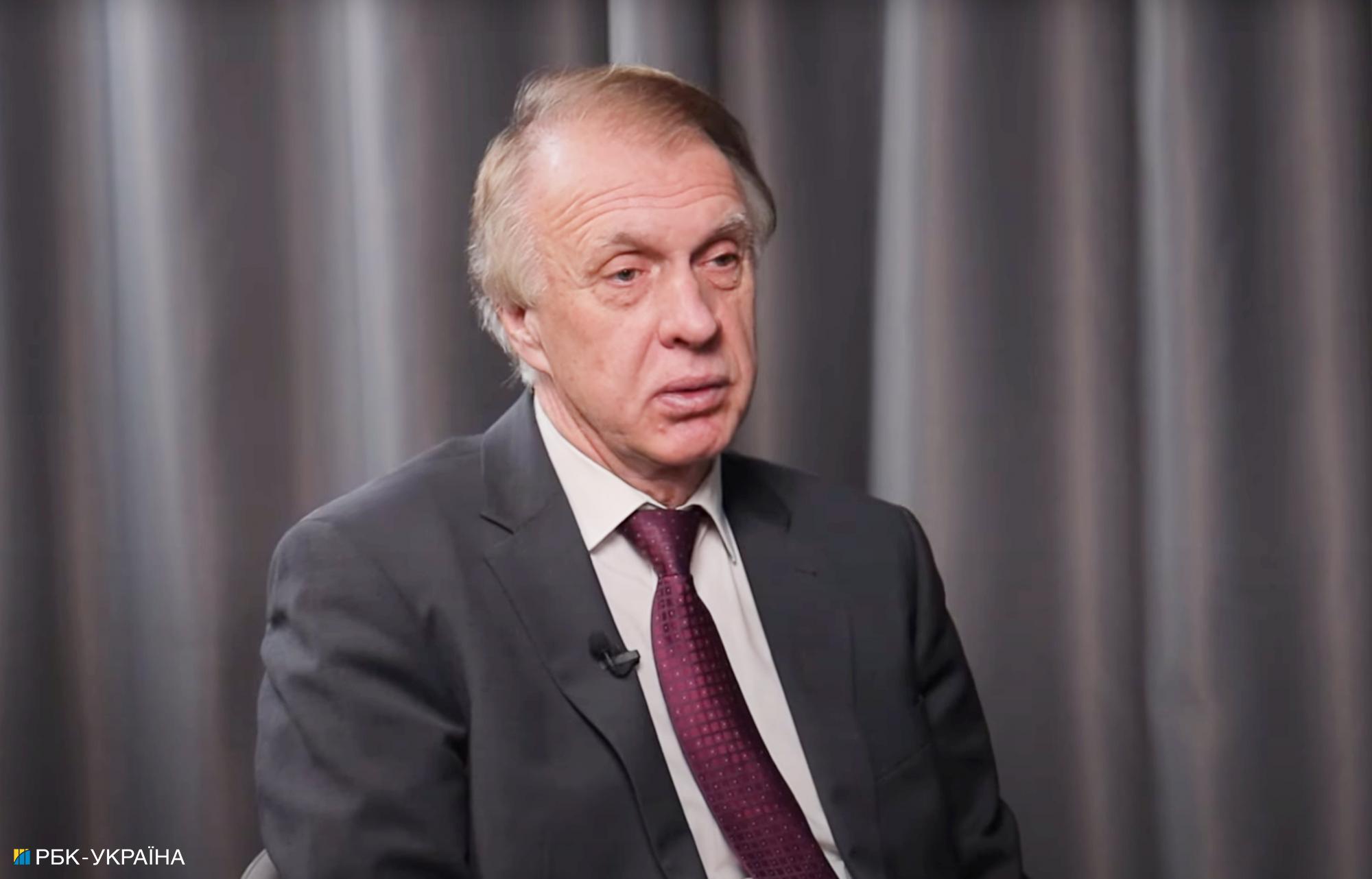
To understand how Russians act in negotiations, one only has to look at the conduct and statements of Russian Foreign Ministry spokesperson Mariia Zakharova. “In her Telegram channel, she addresses Macron with ‘you,’ patronizes Scholz, and calls him degrading names. To them, it’s normal. We’re part of a Western civilized space, and to us, that’s shocking. But to them, if you haven’t insulted someone, it’s as if you’ve wasted your day. In direct negotiations, they don’t curse—that’s a small blessing, since, as you know, Russians don’t curse, they speak in curse words. But here, they do maintain a certain level of civility,” he says.
During talks, Kremlin representatives frequently attempt to drag out discussions, dodge answers, lie, or steer the conversation in another direction.
“It’s a typical tactic, but it fails when you hit a sore spot. Once you identify the pressure point and gradually increase the pressure, they start to consider alternative solutions. As long as you try to persuade them, there are zero results,” Ohryzko recalls.
In future negotiations with Russia, Ukraine’s victory on the battlefield must be that pressure point. No other argument will work.
“Negotiation teams are given directives specifying the desired outcomes—maximum, middle ground, and minimum goals. This is all outlined in directives, which are approved beforehand, and the entire negotiation process begins.
“When delegations want to reach a compromise, each side typically shifts slightly from its maximalist position to meet in the middle. If you aim for the maximum, you end up with a middle-ground agreement. Neither side gets everything, and that’s the compromise. But with Russia, it doesn’t work that way—they want everything, immediately. They demand that only their position be considered. So the only way to counter them is to find that pressure point, make it clear you’re ready to press and show them it will hurt. Then it works,” he explains.
Russians and slavery
“Propaganda that’s poured over people’s heads 24/7 for decades has its impact,” Ohryzko believes.
Now heading the Center for Russian Studies, he notes that most Russians have lost the ability to think independently — they merely follow instructions. As an example, he recalls a recent incident with foil hats worn by Russian teachers. Belarusian prankster Vladyslav Bokhan, impersonating the United Russia party, sent letters to schools in Russia’s Voronezh region, instructing them to make “Patriot Helmets” out of foil, supposedly to shield against NATO satellite influence. Russian teachers dutifully complied.
“This illustrates, on the one hand, the sheer idiocy of those who receive such instructions and start following them. On the other hand, it’s about fear. They’re afraid. When an order arrives from some regional level, it must be obeyed to the letter, praying, bowing, drawing flags, donning foil hats,” Ohryzko says.
“From the standpoint of Russian propaganda, anything they release will succeed, because people have been brought to a state of ideological, psychological slavery. People don’t think, they simply fear. And here we see the fruits of that work. This is about societal fear. About being a slave, with a ruler, tsar, general secretary, or president — it doesn’t matter. He makes all the decisions, and I’m just a tiny cog, a little screw. If I need to turn left, I’ll turn left; right, I’ll turn right — no questions. But I make no decisions. That’s why there’s no civil society in Russia. Try to pull off some nonsense here [in Ukraine], and there’ll be one Maidan, then another, and so on. In Russia, they go through metal detectors, get searched, stand around, wave balloons, talk, and go home. That’s Russian society."
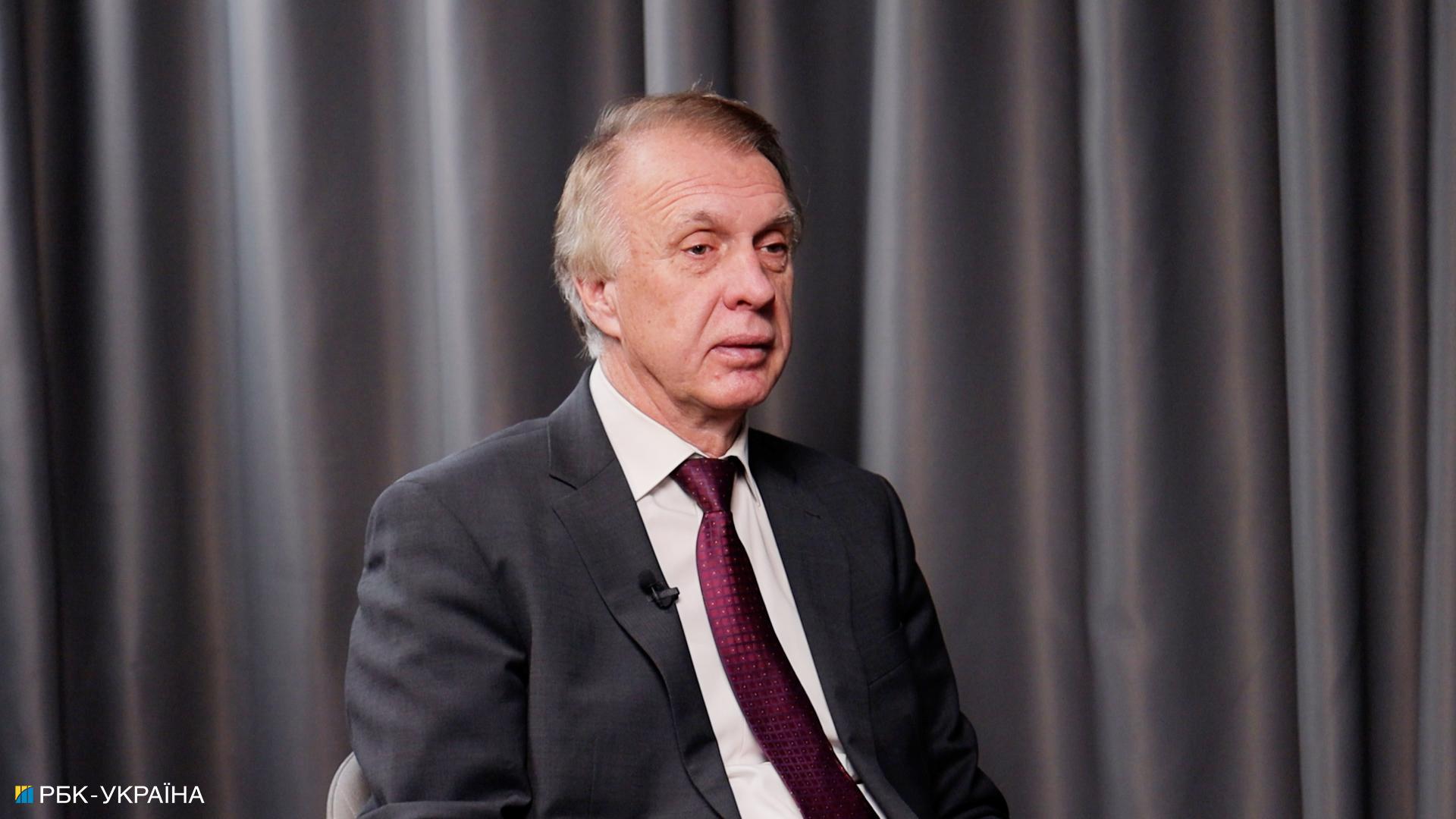
“People who grew up in a system with masters and slaves are directly dependent on one another. And secondly, there’s total fear. For disobedience, the penalty is death. That’s all. In the West, unfortunately, people mistakenly think Russians look like Europeans. Sure, if you put them in Brioni suits, they look fine. Put them in a Mercedes, and even better. But that’s not the issue. Mentally, they are an entirely different population type,” Ohryzko says.
That’s why, he insists, simply removing Putin won’t change anything. Russians would find another dictator: “The masses don’t want freedom. They wouldn’t know what to do with it. It doesn’t matter to them what flag they live under. Blue? Fine. Green? Fine. Red? Fine. As long as they have their rations, as long as they’re left alone, all is well.”
Ohryzko believes that after the war, Russia will need a denazification process similar to what Germans underwent after World War II.
“Nazism had to be purged from German minds, poisoned by fascist ideology. Similarly, this ideology of ‘Rashism’ will have to be cleansed from Russian minds. Rashism is now the dominant ideology in Russia, distorting views on everything. It will take a generation or two, maybe three, for these territories to gradually emerge from this Rashist yoke, primarily the emotional and mental yoke. Then, perhaps, over time, they may evolve into something more reasonable. But not as a unified state. I am convinced this structure won’t hold together for long,” Ohryzko concludes.

